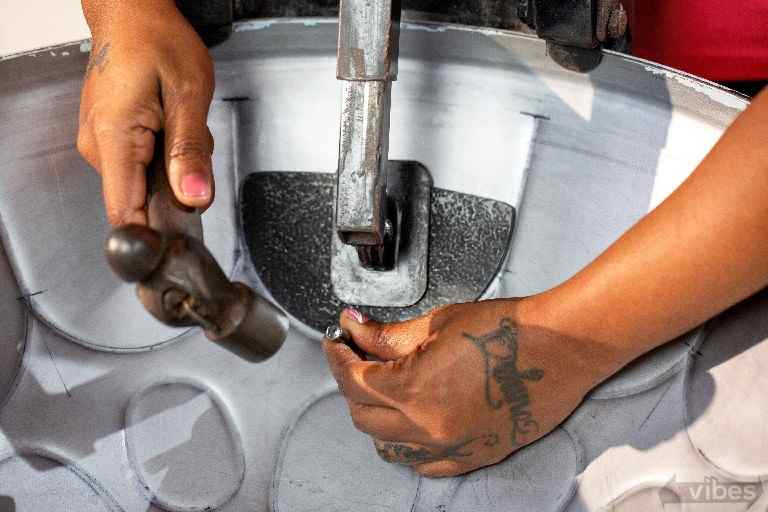By Michael Mondezie

Adrianna Achaiba lives and breathes steelpan music. Whether commanding an attentive hall or inspiring a lively classroom, the 32-year-old double-second tenor pannist shapes the energy of every space she enters.
At the helm of her Achaiba House of Music academy in her hometown of San Fernado, she recently launched the Active Teens programme, a testament to her commitment to music education.
“I always wanted to pursue music as a career, because I knew I wanted to teach music at secondary or tertiary level. I always had a passion for music education and performing,” Achaiba told the Kitcharee.
A music undergraduate from The University of the West Indies (The UWI) St Augustine, Achaiba is a staunch advocate for music certification among budding musicians. The gifted soloist also holds a Master’s in Contemporary Performance from the Berklee College of Music in Valencia, Spain and has studied at the Cincinnati School for Creative and Performing Arts in Ohio, USA.
“I enjoy bringing students together to perform and challenge them to advance in performing in front of their peers and audiences, boosting their confidence and enthusiasm for learning music. I try to create a learning environment that is safe, fun, engaging and open to discovering creativity.
“I hope my students take away from my teaching style and classes that staying true to yourself and open to learning can build them and develop skills that will benefit them in other areas of their life,” she explained.
A musical upbringing
The values of self-confidence and continuous self-improvement were instilled in Achaiba from a very young age by her late father, champion steelband arranger and educator Steven Achaiba.

“I was very young when I began playing the steelpan. My parents told me that I used to stand up on boxes to reach the steelpan,” she recalled.
“I was around three or four years old when I started playing the double tenor. They said I liked the sound of the double tenor. My dad had his steelband at Achaiba’s school of music where I would hear the band performing and practising regularly and loved the sound of it. I played around on the steelpans when I was alone and gravitated towards the double tenor.”
In 2009, at just 16-years-old, Achaiba captivated the nation when she won the Children of Mastana Bahar competition. Two years later, she was presented with a national youth award by the Government of T&T for her contributions to music. Most recently, she performed at the celebration of life for the late Prime Minister Basdeo Panday.
“It brought a higher demand for Indian music in my performances,” Achaiba remembered of the career launching victory.
“I wasn’t too familiar with the Mastana Bahar competition and I was asked by a family friend to just try out at the audition. I wasn’t sure about it because it wasn’t a genre I was used to performing and wasn’t sure if my style would’ve been appropriate for the competition. Just trying it out and being open to learning and performing with the band and exploring the genre taught me to be more open-minded in my musical journey and doors will open,” she revealed.
Celebrating World Steelpan Day

On the first anniversary of the UN designation of World Steelpan Day, Achaiba reflects on the global appreciation for T&T national instrument.
“It means a lot to me. Especially seeing how recognised and appreciated the steelpan has now become from what it originated. Hearing the stories of the steelpan movement from the earlier decades, from my father Steve, to what it developed to be now, is very progressive and brings a lot of people and cultures together. Celebrating this day will bring more cultures and countries together,” she predicts.
Beyond the steelpan, Achaiba sings and plays piano, with dreams of completing a PhD in music and eventually lecturing at university. Her message to young musicians, especially girls, is to respect the process and stay true to their values. “It is not an easy industry to be a part of. It brought a lot of opportunities for me and shaped me to be resilient, patient and appreciative of my talent. Never compromise your morals for fame, be respectful and purposeful in creating your music,” Achaiba concluded.
